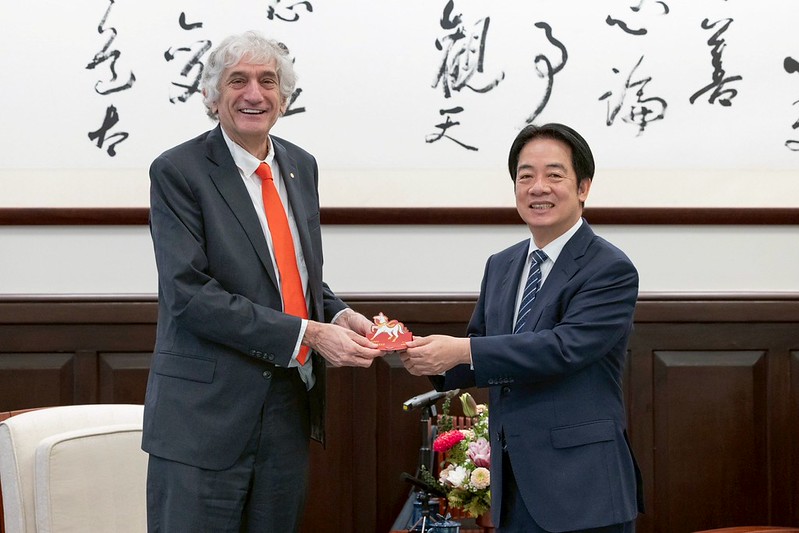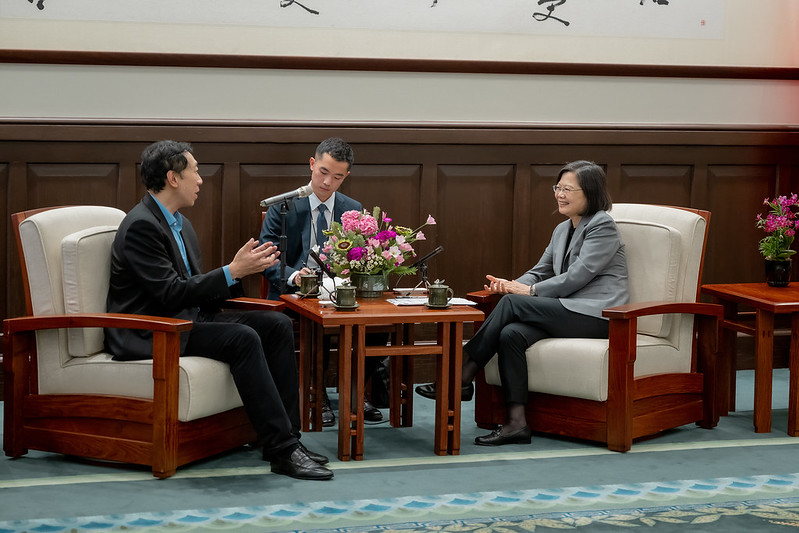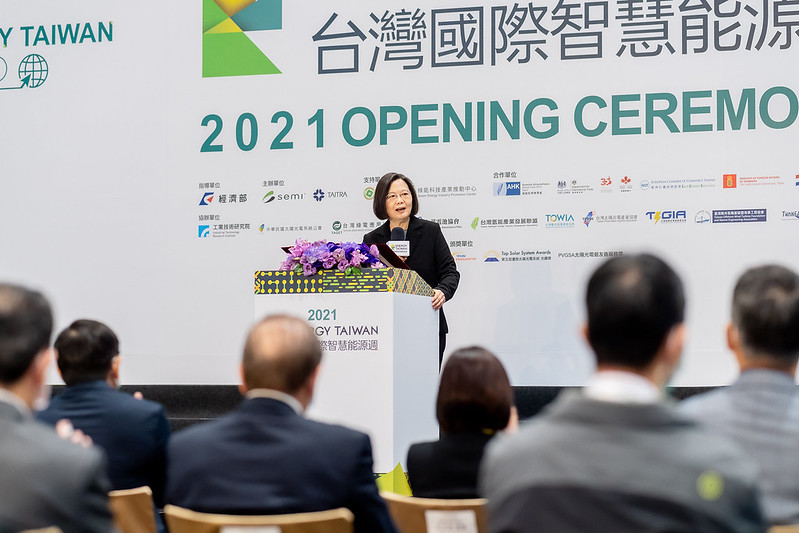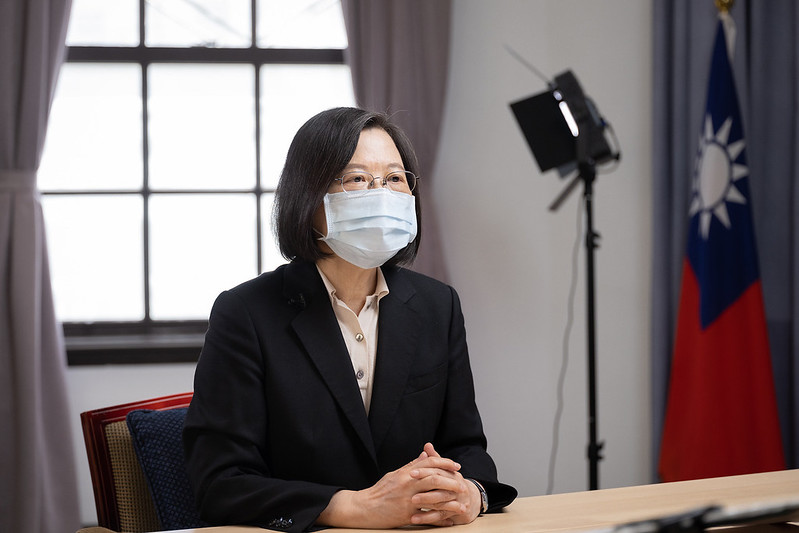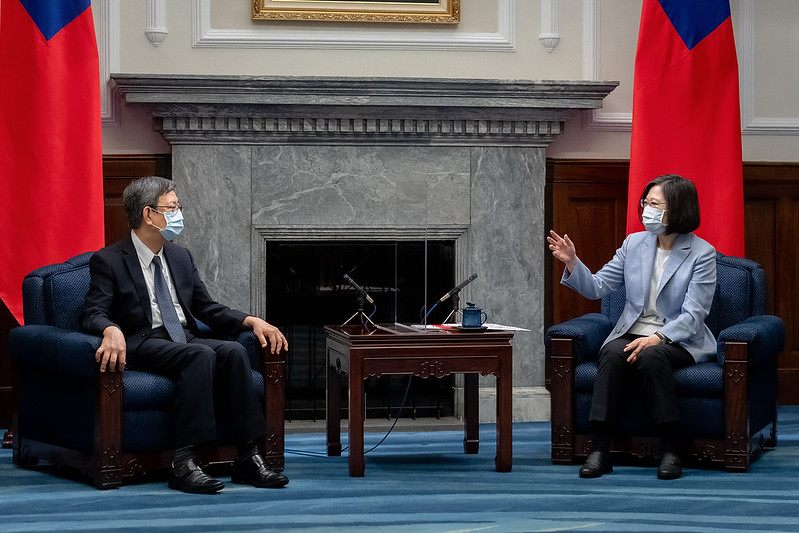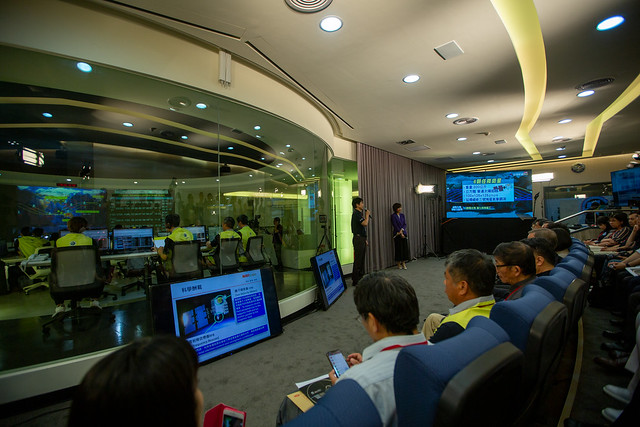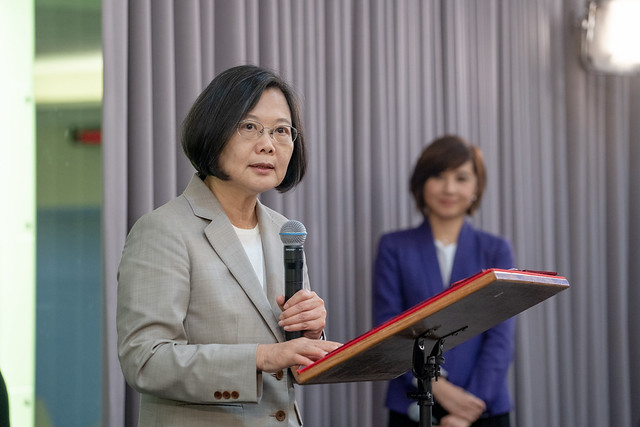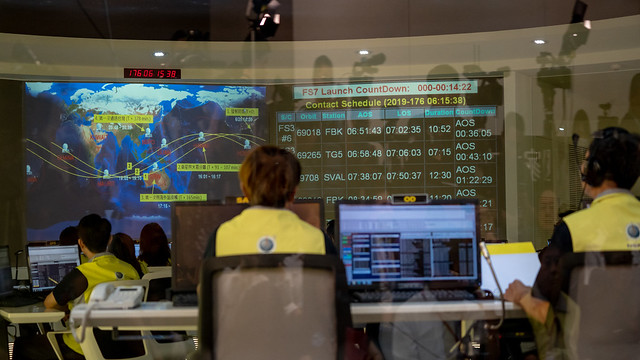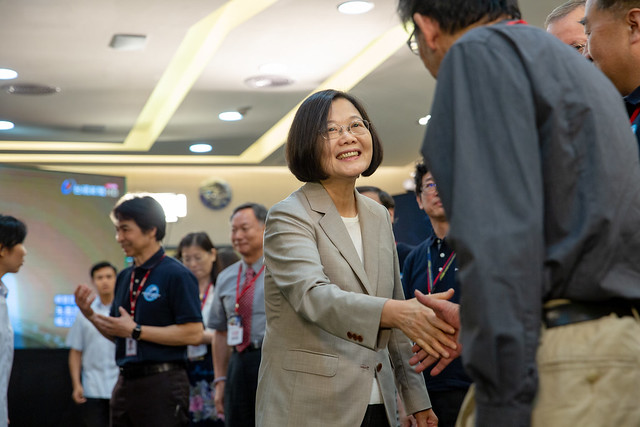News & activities
 News releases
News releases
President Tsai Ing-wen attended a ceremony to witness the launch of Taiwan's Formosat-7 satellite constellation on the afternoon of June 25. She praised everyone on the satellite R&D team for their hard work, and said that the deployment of Formosat-7's six satellites into orbit will allow Taiwan's aerospace technology to shine on the international stage.
In remarks, President Tsai stated that the Formosat-7 launch marks a milestone in the development of Taiwan's aerospace technology. At an important time like this, she said, she absolutely had to come to the National Space Organization (NSPO) to witness the launch.
The president noted that the Formosat-7 satellite constellation, soon to be launched into space from the John F. Kennedy Space Center in Florida by a SpaceX Falcon Heavy rocket, comprises six highly precise and advanced weather satellites. These satellites, she said, are the product of the largest-ever Taiwan-US scientific cooperation project, and after being launched into orbit they will replace the 13-year-old Formosat-3 satellites to become "version 2.0 of the most accurate thermometers in space."
The president further pointed out that data collected by Formosat-7 satellites will not be affected by landmasses, oceans, or weather conditions, allowing them to provide the most powerful weather monitoring capabilities. The data collected will be shared with countries across the globe, and through Formosat-7, Taiwan will make major contributions to the world in many different areas, including disaster preparedness and mitigation, climate change, and environmentally sustainable development. Herein lies the greatest value of science and technology, she said.
This important accomplishment, said the president, is the result of the hard work of countless unsung heroes at the NSPO, the Central Weather Bureau, and various scientific research organizations. All of them are the heroes of our aerospace program, and the pride of Taiwan. The launch of Formosat-5 two years ago demonstrated Taiwan's independent research and development capabilities. Now, the launch of the six Formosat-7 satellites will allow Taiwan's aerospace technology to shine on the international stage.
In the future, she said, we will move from strength to strength by launching new satellites every year. The courage and determination of the Taiwanese people will shine brightly in space with each launch of our satellites. The president thanked everyone who had taken part in the Formosat-7 project, and said they would all be well rewarded for their service. She said she was looking forward to a successful launch and smooth functioning of the Formosat-7 satellites once they are deployed into orbit.
After the president completed her remarks, she received a briefing from NSPO Director General Dr. Lin Chun-liang (林俊良) on the Formosat-7 mission, and then listened to a description of the launch vehicle by National Museum of Natural Science Director-General Sun Wei-hsin (孫維新). She also joined with guests and staff in counting down to and observing the launch.
Afterward, President Tsai fielded questions from reporters. Asked about whether there will be any changes in US arms sales to Taiwan, the president said she had not been made aware of any changes, but the government is keeping communication channels open and stands ready to act as appropriate. Commenting on the successful launch of the Formosat-7 satellites, the president said that this was the result of the hard work of everyone on staff, and that they were doubtlessly the happiest people in the audience. They have all been working very hard for some time, she said, and the government will offer its full support to ensure that Taiwan's aerospace technology continues to progress.
Asked about future aerospace cooperation with the United States, President Tsai said that technical cooperation with the United States will continue forward. The Formosat-7 launch was a concrete example of such cooperation. In the future, all cooperative projects that make an important contribution to technological development will continue to be carried out.
Also present at the ceremony were Deputy Minister of Science and Technology Shieh Dar-bin (謝達斌), National Applied Research Laboratories Vice President Wu Kuang-chong (吳光鐘), and American Institute in Taiwan Taipei Office Director William Brent Christensen.
